Preserving the Past to Serve the Future
Fourth in a Series
Permaculture News has reposted Wellbeing Farm
After leaving the Mid-Atlantic Transition Hub Waterways Reskilling gathering held on November 23, 2013 I realized that the practitioners who attended and spoke – the Transitioners and Permaculturists, the farmers, millwrights, boat builders, fishermen, 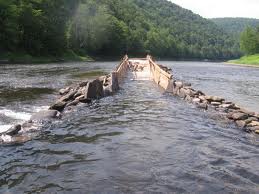 engineers, woodworkers, and sail freighters require a community, a physical location, a place to have re-skilling workshops, to teach classes,to hold gatherings, to take on apprentices, and to build real world solutions for the coming post carbon, Slow Tech era.
engineers, woodworkers, and sail freighters require a community, a physical location, a place to have re-skilling workshops, to teach classes,to hold gatherings, to take on apprentices, and to build real world solutions for the coming post carbon, Slow Tech era.
Slow Technology or “Slow Tech” has its roots in the ideological movement called “appropriate technology,” a term coined by E.F. Schumacher in his book Small is Beautiful, first published in 1973. Slow Tech should be thoughtful about how devices shape our relationships to time, emotion, energy, and bioregional environment.
A Vision for Wellbeing Farm
This concept is called Wellbeing Farm because wellbeing is the state of being happy, healthy, or prosperous. It will be a physical place where Permaculture, an approach to designing human settlements and agricultural systems that reflect the natural world – and Transition where these principles are applied to the dual challenges of climate change and peak oil come together to address themes of energy production, health and wellness, education, economics, and food production and distribution at the community and local level.
Wellbeing Farm will give a physical presence to moving beyond ‘environmental’, ’sustainable’, ‘eco’ this or that. The work is about transitioning to where we want to get to, 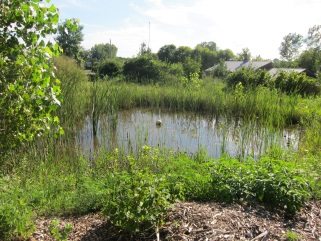 how do we do it, what we would like it to be and look like when we arrive – while giving people the tools to create more sustainable ways of living in community. It is also about how to design this transition in such a way that people will embrace it as a collective adventure, as a common journey, and as something positive – to design fossil fuel descent pathways which make people feel alive, positive and included in the process of societal transformation.
how do we do it, what we would like it to be and look like when we arrive – while giving people the tools to create more sustainable ways of living in community. It is also about how to design this transition in such a way that people will embrace it as a collective adventure, as a common journey, and as something positive – to design fossil fuel descent pathways which make people feel alive, positive and included in the process of societal transformation.
Wellbeing farm will be a center for Permaculture, the crafts of Transition, and for re-skilling for a post carbon world, where demonstrations of the efficacy of producing local food and power can take place, and a place that can provide opportunities for practitioners to have the time and space to develop specific implementable ideas for a world in transition from extraction and growth to a steady state economy.
Four complementary directions for Wellbeing Farm
- That it be replicable, scalable and accommodate different bioregions
- That it is a location for the Mid-Atlantic version of Maine’s Common Ground Country Fair
- That it is a “school” along the lines of, Ralph Borsodi’s School of Living, The Arrowmont School of Arts and Crafts, The Pfeiffer Center, Snow Farm, The New England Craft Program, Whatcom Folk School, Peters Valley Craft Center, North House Folk School, Kinstone Academy of Applied Permaculture, Adirondack Folk School, The WoodenBoat School, and the Penland School of Crafts.
- That it will be a Transitional Community based on Permaculture principles.
- And that it will be the location of a Bioregional Traditional Knowledge Database – an opportunity to collect, in one place, electronic sites, books, drawings, stories, and especially documented experiences with colleagues with traditional skills. Perhaps this “library” can be the beginning of a that will gather and protect historical knowledge and promote innovative practices based on traditional skills.
Wellbeing Farm Mission
The mission of Wellbeing Farm is to provide the means to survive the decades ahead as individuals, communities, and bioregions; to determine pragmatic implementable methods of transitioning away from the use of fossil fuels, and to do this as peacefully, equitably, and intelligently as possible. We will help to create ethical lifestyle changes, teach appropriate technologies that provide benefits rather than cause harm, foster self-reliance, and promote Slow technology through hands-on practice for students, professional practitioners from rural, suburban, and urban areas. We will do so by taking lessons from nature, through care and love of the environment, by developing the skills necessary in all areas of life, and by incorporating the values of care of the earth, care of people, ethical sharing of any surplus, and by teaching that actions have consequences, and that we have responsibilities for ourselves and others.
The Power of Just Doing Stuff
Wellbeing farm will be a center for teaching the skills and re-skilling needed in a post carbon world. Wellbeing Farm will house Permaculture demonstration projects; alternative energy and water conservation pilot projects; and educational facilities built to a
high energy efficiency standard while providing beautiful, peaceful, productive spaces where students, scholars and practitioners can meet perhaps live, and study.
Every community in the United States will have engaged its collective creativity to unleash an extraordinary and historic transition to a future beyond fossil fuels; a future that is more vibrant, abundant and resilient; one that is ultimately preferable to the present.
- Wellbeing Farm will be a physical place where demonstrations of the efficacy of producing local food and power can take place.
- Wellbeing Farm will be a place that can provide opportunities for practitioners to have the time and space to develop specific implementable ideas for a change from resource extraction and growth for growth’s sake to a steady state sustainable economy.
- Wellbeing Farm will be a place with workshops for preserving the past to serve the
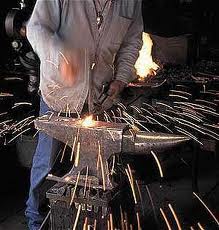 future with wood fired ceramics, practical and decorative iron forging and bronze casting; traditional rope making (from locally grown natural fibers); stone and thatch work; woodworking for building furniture, “passive” buildings, wind and water mills, and “short sea” hybrid sailing freight vessels; leather working for tack for working horses; beer, cider, and spirit distilling for food preservation and medicines; sustainable artisanal fishing; and an incubator for low carbon transportation, communications, and commerce.
future with wood fired ceramics, practical and decorative iron forging and bronze casting; traditional rope making (from locally grown natural fibers); stone and thatch work; woodworking for building furniture, “passive” buildings, wind and water mills, and “short sea” hybrid sailing freight vessels; leather working for tack for working horses; beer, cider, and spirit distilling for food preservation and medicines; sustainable artisanal fishing; and an incubator for low carbon transportation, communications, and commerce. - Wellbeing Farm will provide educational opportunities and creative, implementable, real world solutions to the environmental, economic, and social crises we are likely to face in the near and mid-term future.
- Wellbeing Farm will be one tool that will enable people to work locally to transition our communities and bioregions away from a fossil fuel-based economy to a “restorative economy,” an economy dedicated to core values of human and environmental health and safety, cultural and biological diversity, care for commonly held resources, and cooperative nonviolence. A restorative economy is human-scaled. It embraces alternative locally based energy, is less extractive and less violent.
- Wellbeing Farm is about how to compose this Transition in such a way that people will embrace it as a collective adventure, as a common journey, as something positive, and how communities can feel alive, positive and included in this process of societal transformation. Paraphrasing the title of Rob Hopkins’ new book, Wellbeing Farm will be the embodiment of the Power of Just Doing Stuff.
Permaculture is about designing ecological human habitats and food production systems. It is a land use and community building movement which strives for the harmonious integration of human dwellings, microclimate, annual and perennial plants, animals, soils, and water into stable, productive communities. The focus is not on these elements themselves, but rather on the relationships created among them by the way we place 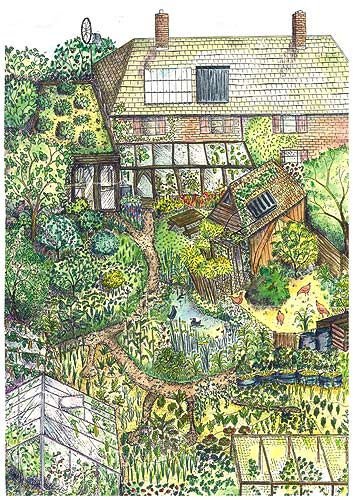 them in the landscape. This synergy is further enhanced by mimicking patterns found in nature.
them in the landscape. This synergy is further enhanced by mimicking patterns found in nature.
The core tenets of Permaculture are:
• Take Care of the Earth: Provision for all life systems to continue and multiply. This is the first principle, because without a healthy earth, humans cannot flourish.
• Take Care of the People: Provision for people to access those resources necessary for their existence.
• Share the Surplus: Healthy natural systems use outputs from each element to nourish others. We humans can do the same. By governing our own needs, we can set resources aside to further the above principles.
Permaculture at Wellbeing Farm entails much more than just food production. Energy-efficient buildings, waste water treatment, recycling, and land stewardship in general are other important components of Permaculture. At Wellbeing Farm Permaculture will include research into and realization of economic and social structures that support the evolution and development of more permanent communities, such as co-housing projects and eco-villages
We live at a fascinating point in history. The convergence of challenges, most particularly global warming and peak oil, have brought us to a point where we are profoundly challenged to act. We are surrounded by “experts” telling us that this means the end – that we have gone too far, that it is inevitable that life as we know it will collapse catastrophically and very soon. Yet, at the same time, something very powerful is stirring and is taking root the world over. People are choosing life and are manifesting that in their lives and their communities. People are starting to see “peak everything” f as the Great Opportunity, the chance to build the world they always dreamed of.
The Transition Movement represents one of the most promising models available to us for engaging people and communities, to achieve the far-reaching actions required to mitigate the effects of peak oil, climate change and the economic crisis. Furthermore, re-localization efforts are designed to result in a life that is more fulfilling, more socially connected and more equitable than the one we live today.
Underpinning the model is recognition of the following: peak oil, climate change and the economic crisis require urgent action; a world with less oil is inevitable so adaptation now is essential; it is better to plan and be prepared, than be taken by surprise; industrial society has lost the resilience to cope with shocks to its systems so we must act together now using all of our skill, ingenuity and intelligence, our home-grown creativity and cooperation, we can unleash the collective genius within our communities, leading directly to a more abundant, connected and healthier future for all.
In the United States, Transition US is a resource and catalyst for building resilient communities across the United States, and The Mid-Atlantic Transition Hub (MATH) envisions an environmentally sustainable, integrated and resilient Mid-Atlantic Region comprising seven states along the US Eastern seaboard, a corridor characterized by a chain of closely adjacent major metropolitan areas. Its mission is to support, promote and foster the interconnectedness of emergent Transition initiatives in all stages of development in the Mid- Atlantic Region.
Wellbeing Farm will be Replicable, Scalable, and Bioregional
The physical location, the size, scope of programs, and services will be dependent upon the needs of practitioners in the bioregion in which the “Farm” is located. For the purposes of this posting, Wellbeing Farm is centrally located on several acres in the Mid-Atlantic States of the US. It could be at one location or at different locations depending on 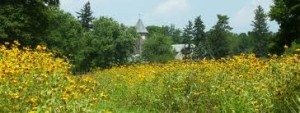 availability of facilities, land, and the needs of the community. It should be located near public transportation, near or on the water, and in a community where some of these activities are already taking place. It is possible that it could be co-located at one of the Craft Centers described earlier or at established institutions like the Garrison Institute, Omega Institute in New York, or Duke Farms in New Jersey. Wellbeing farm could also be co-located with an existing or planned Eco-Village, or Cohousing community.
availability of facilities, land, and the needs of the community. It should be located near public transportation, near or on the water, and in a community where some of these activities are already taking place. It is possible that it could be co-located at one of the Craft Centers described earlier or at established institutions like the Garrison Institute, Omega Institute in New York, or Duke Farms in New Jersey. Wellbeing farm could also be co-located with an existing or planned Eco-Village, or Cohousing community.
Common Ground Fair Mid-Atlantic:
If you’ve ever been to the Fair, you know — and if you haven’t been, anyone who has will tell you — it’s an event like no other, that brings together so many people from so many walks of life, all in the spirit of celebrating the rural and agricultural traditions of Maine.
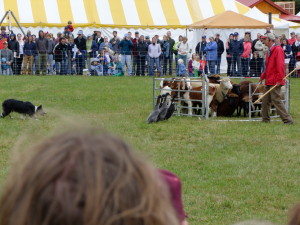 Working with the North East Organic Farmers Associations (NOFA) in the Mid-Atlantic, Wellbeing Farm will provide the space for, and organization for an annual Country Fair. This fair will bring together a large gathering of farmers, change agents, artisans, Slow Money social entrepreneurs, Permaculturists, Transitioners, Eco-Villagers, Organic farmers, fishermen, seed companies, natural food stores, chefs and many thousands of families across Mid-Atlantic region who are creating a new approach to the future.
Working with the North East Organic Farmers Associations (NOFA) in the Mid-Atlantic, Wellbeing Farm will provide the space for, and organization for an annual Country Fair. This fair will bring together a large gathering of farmers, change agents, artisans, Slow Money social entrepreneurs, Permaculturists, Transitioners, Eco-Villagers, Organic farmers, fishermen, seed companies, natural food stores, chefs and many thousands of families across Mid-Atlantic region who are creating a new approach to the future.
Wellbeing Farm Programs
The “School”
As we contemplate and support changes in our food system and our systems of land ownership and use, and as we return to a system which both supports and benefits from organic and locally grown food and manufactured goods, we need to be aware of trade, agricultural land use policies, human rights and suffering throughout the world Wellbeing Farm will provide teaching and learning opportunities.
Facilities will be developed in which intimate conferences can be accommodated, and where Permaculture certification, alternative energy, water conservation, organic and biodynamic farming, and “deep” Transition classes can be taught. The attendees would be able to avail themselves to the ongoing Permaculture, alternative energy, hunter-gatherer skills, natural building, and water conservation projects taking place at the Farm in a “hands-on” way.
Most importantly Wellbeing farm can provide a quiet, bucolic, and beautiful landscape in which to think and write – to experience the relationship between humans, animals, and the natural world, and to learn how to take the experience away with them. Instructors and mentors can be drawn from a variety of disciplines and experiences.
- Barn and home builders will have a place to construct full sized buildings and teach people how to do post and beam, cob, cordwood, stone work, thatching, using recycled shipping containers, and other green building techniques.
- Farmers and foresters who work with horses, will have place to learn about veterinary care, harness making and repair, modifying tractor drawn machinery for horses, manufacture, or where to purchase new
- Millwrights will have a place to build and learn to repair water and wind mills
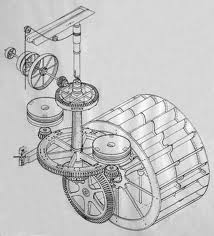
- Sail freighters will have a place to build or rebuild small sail freight boats with traditional tools, and learn rigging, and seamanship.
- Wild foragers will have a place to teach and learn what we can glean from the fields and forest.
- Boyers (bow makers), will have a place where materials and tools are available
- Furniture makers will have a source of wood, a sawmill, drying sheds, and work shops
- Weavers will have a source of wool, a place to clean, spin, and dye
- Potters, will have clay, wheels, and kilns
- And farmers will have a place to socialize, and learn skills from one another
Courses could include but not be limited to:
- Crafts and Folk Art
- Basketry
- Blacksmithing and tool making
- Boatbuilding
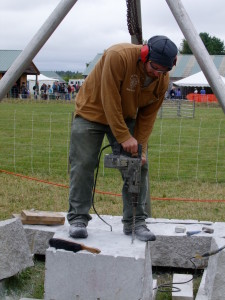
- Clothing and ornament
- Fiber and Fleece workshops
- Food preparation and preservation
- “waste” management
- Entertainment/music and storytelling
- Outdoor skills
- Cruelty free animal husbandry, Animal Welfare Approved,”“Certified Humane,” “American Grass-fed,” and “Food Alliance Certified
- Working with draft animals
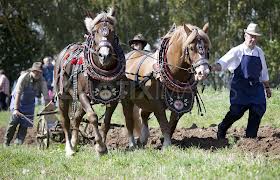
- Low impact forestry
- Herbs, Health, and healing
- Energy and Shelter
- Sustainable living
- Timber framing
- Project management
- Woodworking and furniture
- Permaculture design courses and demonstration projects
- Composting and recycling
- Organic, biodynamic, and urban agriculture
- Developing urban agriculture facilities
- Stone working
- The New Economy and local currencies
- Starting a farm based business
- Maple syrup and sugars
- Beer, cider making, and distilling
- Social and political action
- Alternative energy and water conservation pilot projects
Wellbeing Farm will also help us reach another goal, educational opportunities for young people using Permaculture. Permaculture as a design system is rooted in an understanding of ecological principles. Therefore in considering how we can design an effective, inclusive and sustainable learning community, it is useful to consider how humans gain an understanding of ecological principles from an early age. How do children move from a sensory awareness of the natural world to a more conceptual understanding of natural cycles, energy flow and interconnectedness? How do we ensure that our children have the best possible start to understanding the ‘why’ behind the ‘how’ of our Permaculture ways in a way that transcends the limitations of school? Permaculture for children’s learning experience could include the following:
- Increasing the understanding of basic ecological principles by making the ‘abstract’ more ‘concrete’ through kinesthetic activities
- Making it happen outside in a place where natural processes can be easily observed
- Emphasizing that we are part of the natural world
- Engaging the emotions, senses and intellect
- Including time for contemplation, community and creativity by focusing on developing comprehension of ecological principles as a precursor to a later understanding of frameworks such as Mollison and Holmgren’s Design Principles.
In order to instill Wellbeing Farm with this spirit of community of place, regeneration, and resilience, Wellbeing Farm will also include short and long term residencies for adults involved in Transition, Permaculture, and Re-Skilling. These residents will be experienced practitioners, that will form both the heart of the “faculty” and a community, one that will provide an example of ways to transition our communities away from a fossil fuel-based economy to a “restorative economy,” an economy dedicated to core values of human and environmental health and safety, cultural and biological diversity, care for commonly held resources, and cooperative nonviolence. A restorative human-scaled economy utilizes alternative locally based energy, is less extractive and less violent.
“Spirit of place symbolizes the living ecological relationship between a particular location and the persons who have derived from it and added to it the various aspects of their humanness. The reason we are now desecrating nature is not because we use it to our ends, but because we commonly manipulate it without respect for the spirit of place.” – Rene Dubos .
Place is intimate, personal, filled with meaning and potential. Place arises from the rich 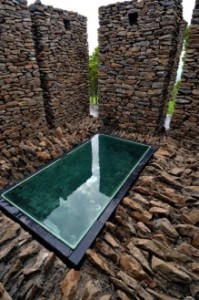 connections among the earth, local nature and spirit. Regeneration is the process of building local capacity for sustainability that endures. Regenerative development captures the unique rhythm and spirit of a place, partnering people and their place to create enduring value for all life. It helps people truly experience Place, growing the caring required to make sustainability real. Resilience is the capability to anticipate risk, limit impact, and bounce back rapidly through survival, adaptability, evolution, and growth in the face of turbulent change. Resilience refers to the ability of a system to hold together and maintain its ability to function in the face of change and shocks from the outside. Resilient communities possess the ability to withstand external shocks and can come back quickly from sudden environmental or economic changes. As Permaculture practitioners we place resilience at the heart of any plan.
connections among the earth, local nature and spirit. Regeneration is the process of building local capacity for sustainability that endures. Regenerative development captures the unique rhythm and spirit of a place, partnering people and their place to create enduring value for all life. It helps people truly experience Place, growing the caring required to make sustainability real. Resilience is the capability to anticipate risk, limit impact, and bounce back rapidly through survival, adaptability, evolution, and growth in the face of turbulent change. Resilience refers to the ability of a system to hold together and maintain its ability to function in the face of change and shocks from the outside. Resilient communities possess the ability to withstand external shocks and can come back quickly from sudden environmental or economic changes. As Permaculture practitioners we place resilience at the heart of any plan.
Bioregional Traditional Knowledge Database
”Today, traditional knowledge is in danger and its disappearance would not only cause the loss of people’s capability to keep and pass on the artistic and natural heritage, but also of an extraordinary source of knowledge and cultural diversity from which the appropriate innovation solutions can be derived today and in the future.”
This bioregional data base will learn from and interface with the recently launched “International Traditional Knowledge Institute” (ITKI) l is an ambitious effort to preserve, restore and promote the re-use of traditional skills and inventions from all over 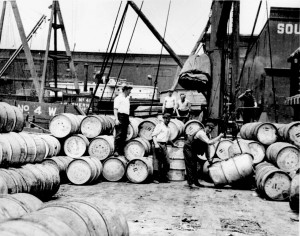 the world. It includes an online encyclopedia of low-tech know-how.
the world. It includes an online encyclopedia of low-tech know-how.
The physical and electronic data base will include a library where books, blueprints, photographs, and drawings, of how things were made, and how we fed ourselves in a pre-carbon world will enable us to preserve the past to serve the future. This could include resources like the Whole Earth Catalog, books published by Shelter Publications, the Fox Fire books, mechanical engineering texts, trade encyclopedias, and downloaded and printed reproductions like Small Hydropower Systems, home built windpower, and books and resources for Medieval Technology.
Why Wellbeing Farm Now?
We live at a fascinating point in history. The convergence of challenges, most particularly global warming and peak oil, have brought us to a point where we are profoundly challenged to act. We are surrounded by “experts” telling us that this means the end, that we have gone too far, that it is inevitable that life as we know it will collapse catastrophically and very soon. Yet, at the same time, something very powerful is stirring and is taking root the world over. People are choosing life and are manifesting that in their lives and their communities.
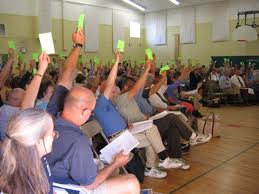 The scale of the challenge is huge, and the obstacles are plenty, but there is an emerging energy to succeed, a sense of exhilaration in talking and listening to each other once again, to visioning what we want and then rolling up our sleeves and starting to co-create it. This is not a denial of the scale of the challenges we face, rather a practical and instinctual response to it. In towns and cities all over the world people are asking each other “what can we do about this?”
The scale of the challenge is huge, and the obstacles are plenty, but there is an emerging energy to succeed, a sense of exhilaration in talking and listening to each other once again, to visioning what we want and then rolling up our sleeves and starting to co-create it. This is not a denial of the scale of the challenges we face, rather a practical and instinctual response to it. In towns and cities all over the world people are asking each other “what can we do about this?”
In a world of diminishing resources and increasing stresses on natural and social systems we must rapidly implement strategies to restore degraded landscapes, shelter and feed displaced and hungry people, and convert our energy-wasteful infrastructure to holistic and ecological systems that meet their own needs and the needs of those who manage them.
Wellbeing Farm lays the foundation for understanding the workings of natural systems and for designing human environments that produce food, shelter, and energy. It also provides participants with models of community development and extension by which they can create networks of support for themselves and empower others to do the same.
Resources:
John Leeks Historic Home Works
Ralph Borsodi School of Living
The Preservation Education Institute
Savannah College of Art & Design
American College of the Building Arts
Museum of Early Trades and Crafts
Pine Mountain Settlement School

Pingback: to city hall, all! | Bowsprite: A New York Harbor Sketchbook
Pingback: Co-creating our futures | Catalysis